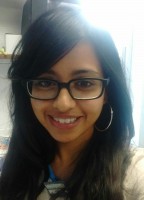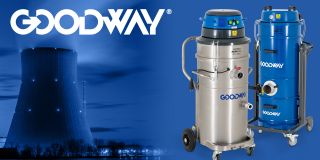Marie Curie: The Woman Who Used Radiation to Save a Million Lives
By: Priyarshini Ghosh
It is very good to know that ANS Winter Meeting and Marie Curie's birthday share a day. Could it be a coincidence? Perhaps not; it's almost like she's out there, cheering us on silently but powerfully.
More often than not, scientists are simply known for their work and what they discovered or invented, but with Madam Marie Curie, many of us know more about her than just her pioneering research in radioactivity. We know her to be a woman that broke numerous barriers and fought prejudices in order to "school the world" into not discriminating amongst scientists, just for the sake of science.
Curie's life is truly inspiring. It almost seems like she was purposefully unaware of the oppressions of her time, and just charged ahead. She hit many roadblocks while on her path to becoming a legendary scientist. She was unable to enroll in higher education for being a woman (she was denied by several institutions on similar "grounds"), she was almost boxed out of her first Nobel Prize (the almost being courtesy of a sensible man in the prize committee), and was prevented from delivering speeches. Despite it all, she never gave into the system, carrying on with her work with pure passion and unblemished devotion. The most fascinating part of which, I find, is that she did not spend her efforts challenging the system for female empowerment, but instead she stood up for the benefit of science alone.
Curie had infamously refused awards, honors, and even returned scholarship money. Her motivation to take a strong stand was done purely in the name of science, and notably comes in a close second, if not tied with, her contributions to the field of radioactivity.
Marie Curie's beginnings were quite humble. She did not start out with a dedicated laboratory, nor with university sponsorships. She often carried out her own research, even providing World War I soldiers' treatment from her own one-gram supply of radium. It has been said that she assisted over a million soldiers with her X-ray units to help locate and treat shrapnel in their bodies.
She successfully disproved the ancient hypothesis of the elementary nature of atoms by theorizing that radiation comes not from any interaction but instead from within the atom itself. She, along with her husband Pierre Curie, with whom she bonded over a mutual love for science, discovered the existence of (and named) two elements Polonium (Po) and Radium (Ra).
Curie went on to become the first woman to win a Nobel Prize, but did not stop there. She became the first person ever to win two Nobel Prizes in different fields. As her work drew recognition, she began tearing down the prejudices of society, again not by a direct motive to do so, but to move science forward. The University of Paris had not been willing to provide her with a laboratory, but the threat of her leaving them for Pasteur Institute (who offered to build a lab for her) motivated them enough to reconsider. Despite scandals, xenophobia and hypocrisy of the French establishment, she presented at conferences, tried to donate her Nobel Prize medals to the French National Bank, and gave away her award money to institutes and scholars.
Although she herself never believed it, it is widely speculated that her long-term exposure was the reason for her contracting aplastic anemia that ultimately led to her death. Although, quite ironically, she helped save a million lives (directly) by using radiation, which has developed drastically in recent times to have saved millions more!
Happy birthday, Marie Curie. As a woman, I am proud of how she has paved the way for institutions to be more accepting of females, but as a nuclear engineer working with uranium for a living, I want to thank you for laying the foundations for me, and many other daring scientists, who are lucky enough to be working with fascinating, radioactive materials for the good of mankind!
 Priyarshini Ghosh is a nuclear engineering graduate at Kansas State University, chasing after fast neutrons in her lab. She is an aspiring writer and an advocate for nuclear as a clean, safe and cheap source of energy. She loves to talk about nuclear power @priyoghoshX on Twitter. She has a background in chemical engineering that guides her with the intricacies of designing detectors.
Priyarshini Ghosh is a nuclear engineering graduate at Kansas State University, chasing after fast neutrons in her lab. She is an aspiring writer and an advocate for nuclear as a clean, safe and cheap source of energy. She loves to talk about nuclear power @priyoghoshX on Twitter. She has a background in chemical engineering that guides her with the intricacies of designing detectors.

